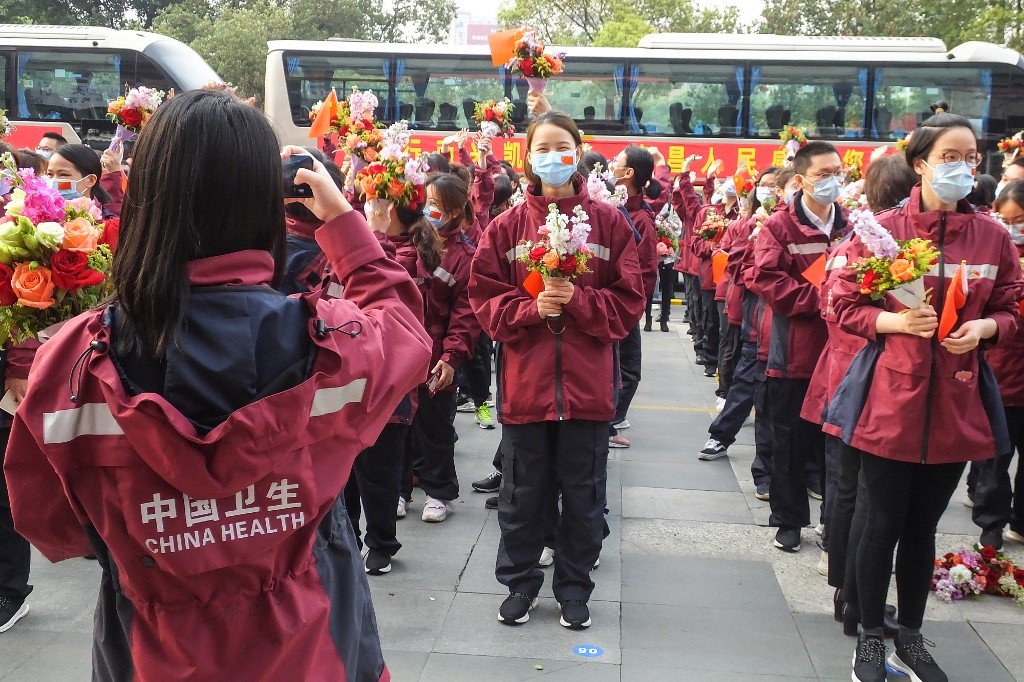(ATF) Asian markets are in retreat as investors get a reality check ahead of the earnings season and release of key economic data. First up are the banks and technology companies which will give investors a sense of the earnings visibility besides an assessment of the economic damage.
These concerns triggered more central bank action with the People’s Bank of China offering 100 billion yuan via the one-year medium-term lending facility, cutting the rate to 2.95% from 3.15%.
“Economic activity has fallen off a cliff in much of the world and, while it should start to recover over coming months, it looks unlikely to recover back to pre-Covid-19 levels until late next year, by when a vaccine may hopefully have been developed,” Rupert Thompson, Chief Investment Officer at wealth manager Kingswood, said.
“As for corporate earnings, estimates have already been cut significantly but look certain to be revised down substantially further. In short, we believe the bounce in equity markets is overdone and equities are quite likely to fall back.”
In stocks, Japan’s Nikkei 225 is down 0.5%, Australia’s S&P ASX 200 is 0.58% lower, China’s CSI300 has edged down 0.2% and Hong Kong’s Hang Seng index is flat. Regionally the MSCI Asia Pacific index is off 0.21%.
Oil prices continued their recovery – Brent futures are up 0.7% and WTI is 1.7% higher.
Credit markets upbeat
Credit markets remain upbeat on supportive measures from central banks which have assured liquidity conditions will remain flush. Sovereign credit default swaps (CDS) are tighter with the Asia IG index a basis point tighter at 112/115. China’s 5-year CDS is steady at 38/41 bps, Indonesia has contracted by 1 basis point at 180/190 bps and Vietnam is 5 bps tighter at 245/295 bps. The investment grade pipeline is expected to get busy as issuers take advantage of the record lows struck by US Treasuries, from which these bonds are priced. Lenovo has announced a 5-year bond and China Travel Service has hired banks for a potential Reg S offering.
Even as the infection count approached the 2 million mark with 126,557 deaths globally, the economic relief announced by central banks and governments across the world is giving investors hope.
“We believe that the loosening of liquidity constraints should limit the risk that this pandemic outbreak results in anything more than a cyclical, albeit sharp, slowdown,” said Kelvin Blacklock, Head of Investment Solutions at Eastspring Investments. “Price-to-book valuations suggest that the correction has created opportunities for long-term investors. While the price-to-book valuation of MSCI USA, for example, is currently below its long-term historical average, the valuation for MSCI Asia Pacific ex Japan is approaching its 2008 lows.”
He said credit yields look attractive at current levels and that compared against US Investment Grade bonds, the spreads for Emerging Market bonds are wide relative to history.
Key Chinese data
Also later in the week, the world’s second biggest economy China, will release a batch of key economic data. Besides GDP, it will also announce retail sales, fixed asset investment and industrial production numbers.
HSBC’s co-head of Asian Economics Research Frederic Neumann said he expects first quarter GDP to contract by 5.5% year on year.
“Friday’s industrial production, retail sales, and investment numbers will give a more reliable indication of how much activity accelerated. Investment may have done better, but the thing to watch is retail sales: car sales, for instance, while up sharply on the month, are still down over 40% y-o-y in March, from an already depressed base,” he said.
Overnight, Wall Street stocks rose on hopes the US administration will ease some of the lockdown measures with the Dow Jones Industrial Average rose 2.39%, the S&P 500 climbed 3.06%, and the Nasdaq Composite firmed up 3.95%.
























